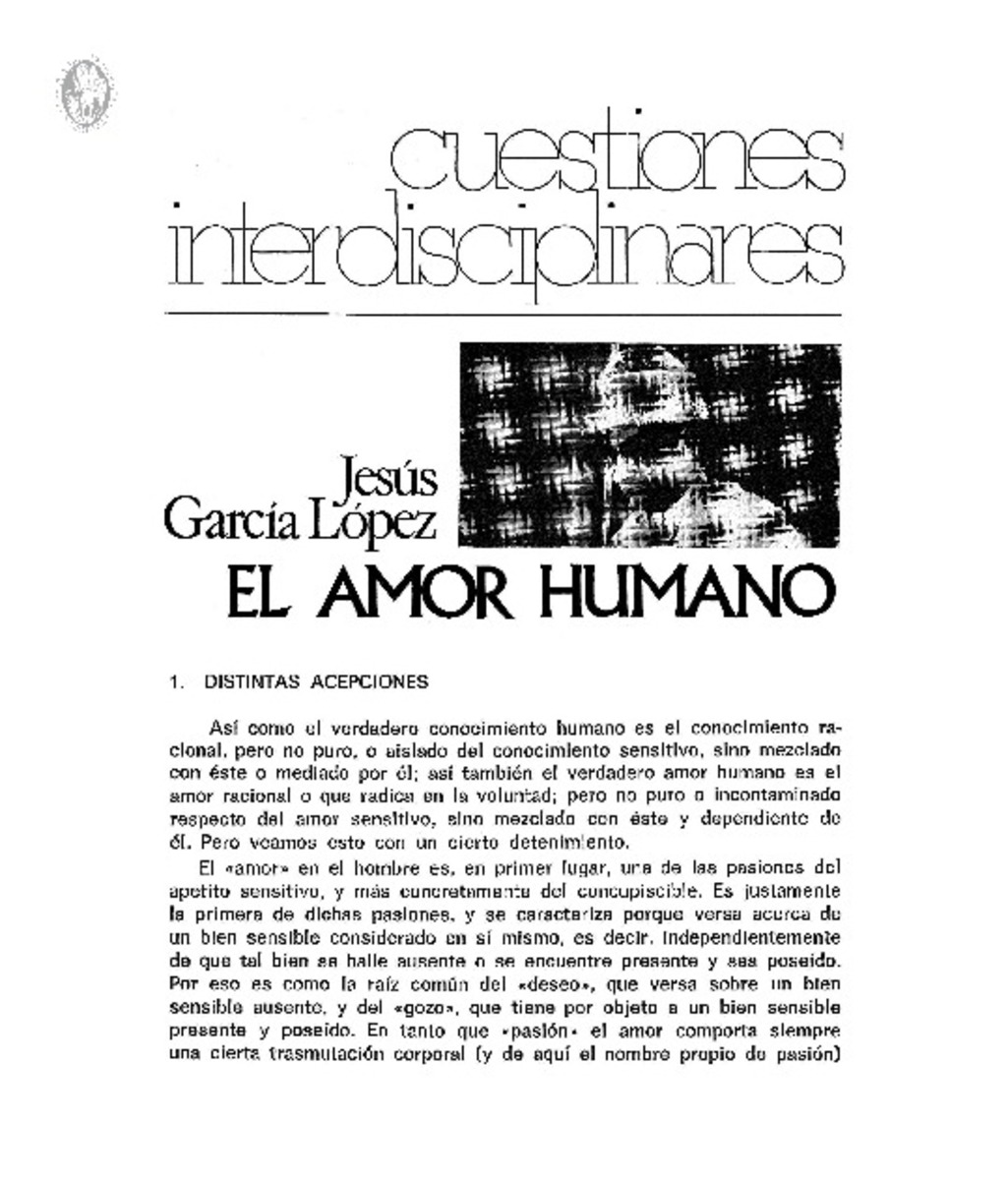Registro completo de metadatos
| Campo DC | Valor | Lengua/Idioma |
|---|---|---|
| dc.creator | García-López, J. (Jesús) | |
| dc.date.accessioned | 2010-09-13T08:31:27Z | - |
| dc.date.available | 2010-09-13T08:31:27Z | - |
| dc.date.issued | 1974 | - |
| dc.identifier.citation | García López, Jesús. ""Cuestiones interdisciplinares (el amor humano)"". Persona y Derecho, 1 (1974) : 267-281. | es_ES |
| dc.identifier.issn | 0211-4526 | - |
| dc.identifier.uri | https://hdl.handle.net/10171/12155 | - |
| dc.description.abstract | Human love can be either a passion of the sensible appetite or an act of the will. This second type of love, insofar as it is preceeded by a choice, is also called di/ectío. This in turn may be of two types: love of possession (or of a thing), and love of communion (or of a person). By its very nature, the love of a thing is directed to the love of a person, and when this order is upset, certain aberrations make their appearance: either things are loved as if they were persons, or persons as if they were things, or finally persons are loved as persons but without wishing to do anything for them. The three requirements for love are: good, likeness, and knowledge. The Good refers to the object of love, which is always some good, either a substance (person) or an adjective (thing). Likeness refers to the subject of love, and is either perfect (person) or imperfect (thing). Knowledge has to do with the relation subject-object, because nothing is loved if it is not first known. The four principal effects of love are: union, mutual indwelling, extasis and zeal. Union, to a certain extent anterior to love, is also an effect of love, and the union is real to the extent to which it is possible: «two lovers wish to become one». The mutual indwelling is that by which the lover is in the loved one by knowledge and by desire and in the same way the loved one in the lover, so that each one can say: «1 live, rather it is not 1, but the other that lives in me». Extasis, or going outside oneself, is due to the fact that the lover is outside himself and lives in the loved one. And finally, zeal is a movement in defence of love, by which everything that threatens love is rejected. Human love in the strict sense is the love between man and woman, and is a mixture of the love of a person and the love of a thing, because it refers not only to the souls but also to the bodies, and presupposes the characteristic of exclusiveness that is typical of the love of a thing. But it is also the love of a person and implies by its nature a constancy or endurance until death. | es_ES |
| dc.language.iso | spa | es_ES |
| dc.rights | info:eu-repo/semantics/openAccess | es_ES |
| dc.subject | Materias Investigacion::Derecho | es_ES |
| dc.title | Cuestiones interdisciplinares (el amor humano) | es_ES |
| dc.type | info:eu-repo/semantics/article | es_ES |
| dc.identifier.doi | 10.15581/011.32847 | es_ES |
Ficheros en este ítem:
Estadísticas e impacto
Los ítems de Dadun están protegidos por copyright, con todos los derechos reservados, a menos que se indique lo contrario.






